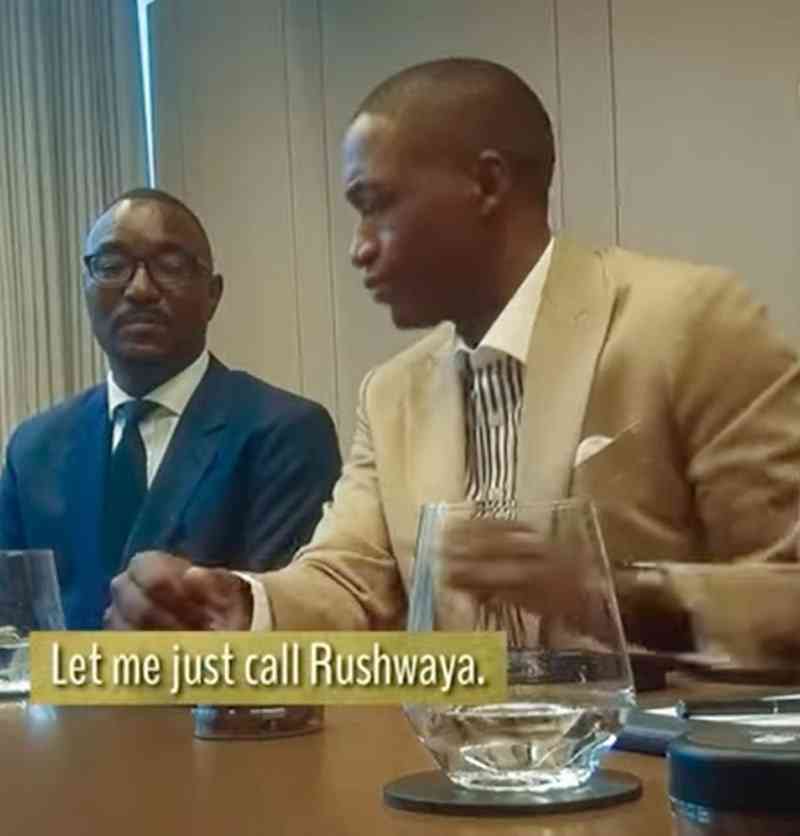
The Zimbabwean government says it is moving with speed to take action against the “gold Mafia” shown in Al Jazeera’s undercover documentary that exposed the complicity of officials and state entities in money laundering and widespread fraud.
Information minister Monica Mutsvanga claims that the government takes the allegations “seriously” and is “investigating”. But she lays the blame on “boastful behaviour and name-dropping” by the likes of Uebert Angel, godfather of the Good News Church who has reportedly been thrown under the bus.
What prompted this surprising responsiveness could be the fact that the investigation was conducted by Al Jazeera and not the usual suspects in the Western and South African media.
After all, the criminal web of cartels and thieves was well known already. It was laid bare in the comprehensive and explosive report published by Maverick Citizen more than two years ago.
That report followed the trail of criminality to the big man himself, President Emmerson Mnangagwa, and there were no statements in response saying that the government was “seized by the matter”.
What has changed is that Akinwumi Adesina, the president of the African Development Bank, initiated a dialogue at the end of last year between the Zimbabwean government and its creditors aimed at restoring the country’s international creditworthiness.
With his genial smile and natty bowties, Adesina is more carrot than stick as he gently steers Mnangagwa’s government towards a deal that would help Zimbabwe clear the country’s US$14-billion debt and open the way for new investment and a fresh lease of life for the Zimbabwean economy.
Mozambique’s ex-president Joaquim Chissano, the facilitator of the talks, claimed progress at their last meeting of the “structured dialogue platform” on February 23 toward agreement on economic and governance reforms and compensation for white commercial farmers.
- Mavhunga puts DeMbare into Chibuku quarterfinals
- Bulls to charge into Zimbabwe gold stocks
- Ndiraya concerned as goals dry up
- Letters: How solar power is transforming African farms
Keep Reading
The Al Jazeera documentary — only three parts have been shown so far — lands at a sensitive moment. And it shows why it is important to have an honest discussion about the extent and nature of the problem.
In summary: Zanu PF today is a ruling party steeped in patronage politics and captured by rogue capitalists and criminals of all stripes who are making millions out of a crooked system while hospitals and schools rot and 44% of the population — those who have chosen not to cross to the often-hostile new worlds across the borders — are stuck in extreme poverty.
Zanu PF still blames its colossal failure on US sanctions, which are targeted against individuals and not the economy itself, rather than on the political violence, economic mismanagement and corruption of its own making.
ANC leaders such as secretary-general Fikile Mbalula, who should know better, parrot the line, essentially blaming the imperialists for the economic collapse that has driven millions of migrants into South Africa, straining resources and creating a simmering cauldron of anti-foreigner sentiment that pits the poor against the poor.
This is a convenient dodge that denies reality and removes South Africa from a more constructive role in the process, while the ANC’s foreign policy goes off to die on the hill of the Russian invasion of Ukraine.
So it has fallen to former Nigerian Agriculture minister Adesina, who is passionate about Zimbabwe, where he once lived, and Chissano to make the case for rebuilding and healing.
An early test will be elections to be held later this year. Zanu PF can take heart that Adesina has emphasised that regime change is not on the agenda, which is just as well because few believe that defeat for Zanu PF is likely or that Nelson Chamisa’s Citizens Coalition for Change is in any shape to win yet.
Zanu PF has turned electoral manipulation into a fine art and there is doubt about how much access the opposition will have to the bulk of the electorate in the rural areas.
The long-term challenge is a clear quid pro quo: Zimbabwe will never be able to recover or reach its potential without a return to the rule of law.
Thanks to Al Jazeera, the world knows just how difficult that will be.
“The young people of Zimbabwe cannot continue to suffer for a past they did not create,” says Adesina, who has called the process that he is championing, “the pathway to hope”.
“They deserve to have their once-prosperous country back.”
The unanswered question is whether the sundry collection of crooks and oligarchs — and their political sponsors — who are quite happy to continue with things the way they are, are willing to hand it back.









